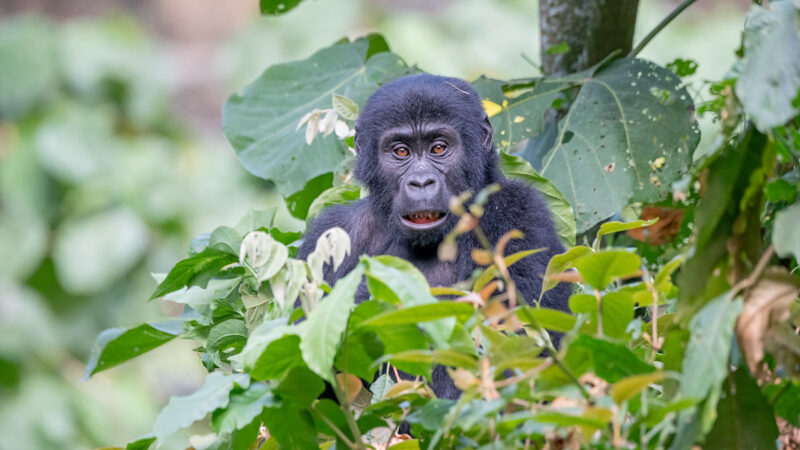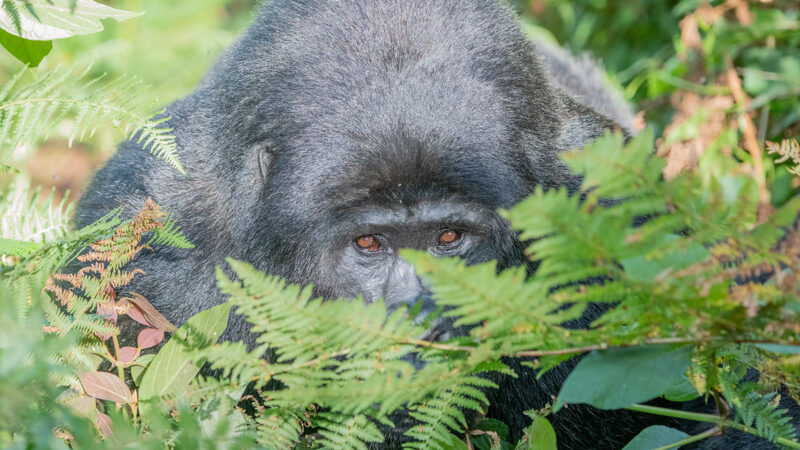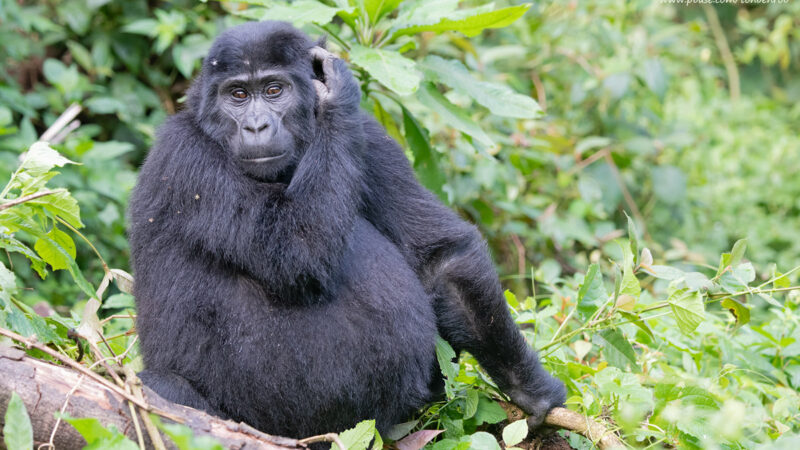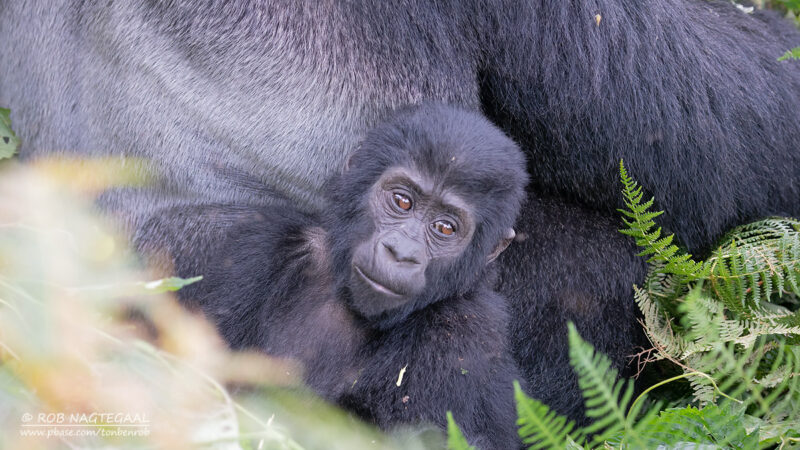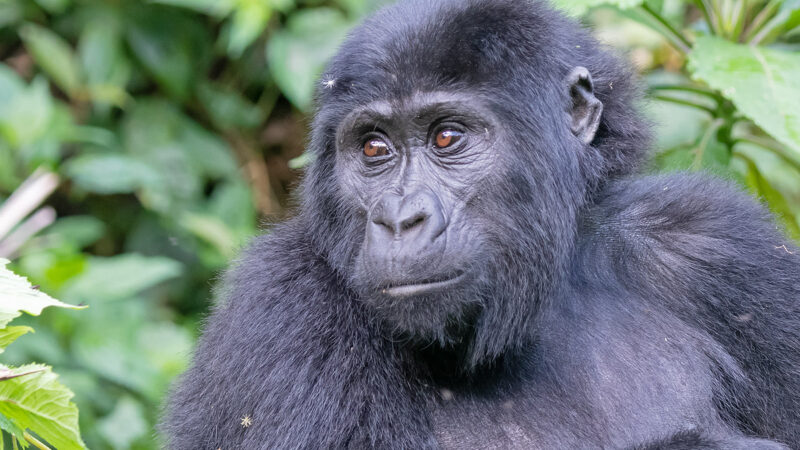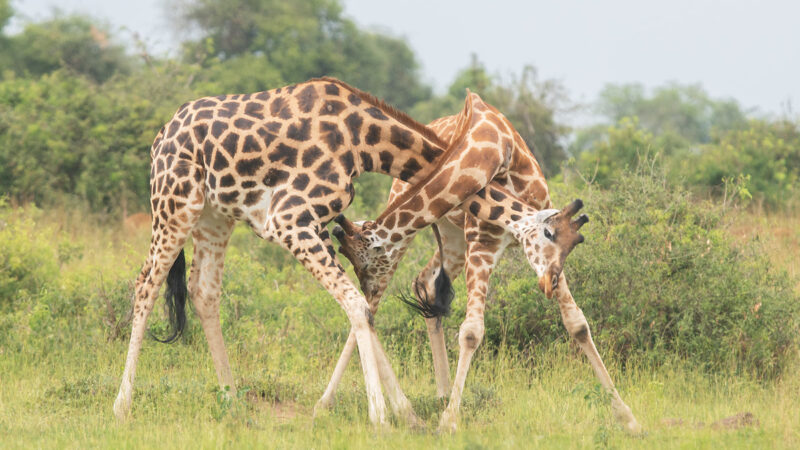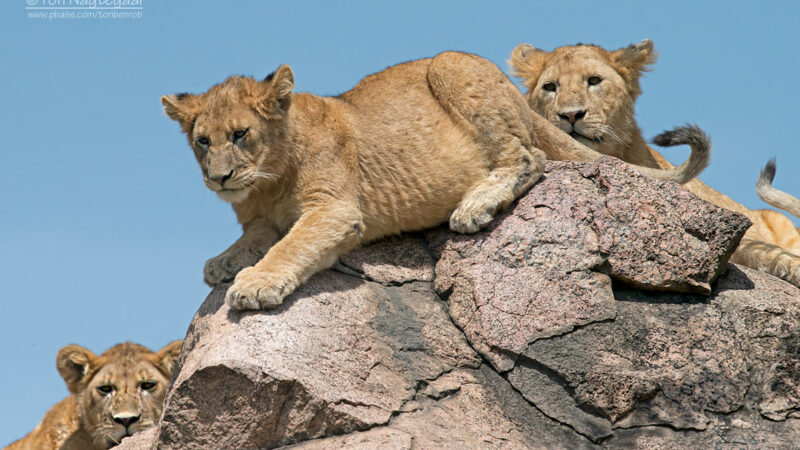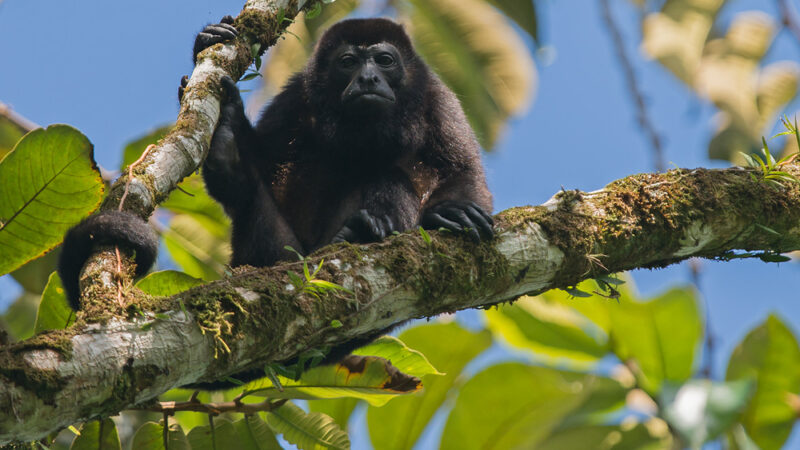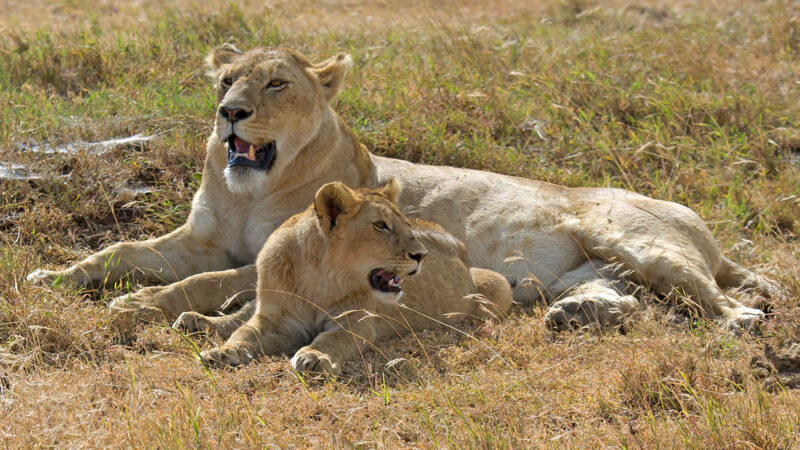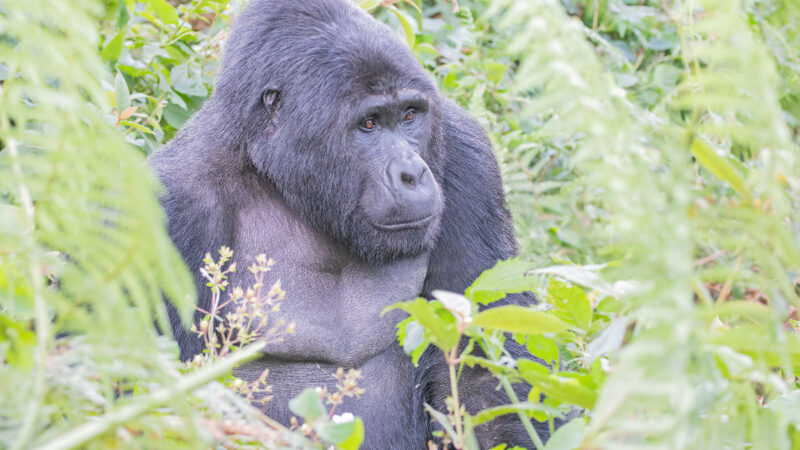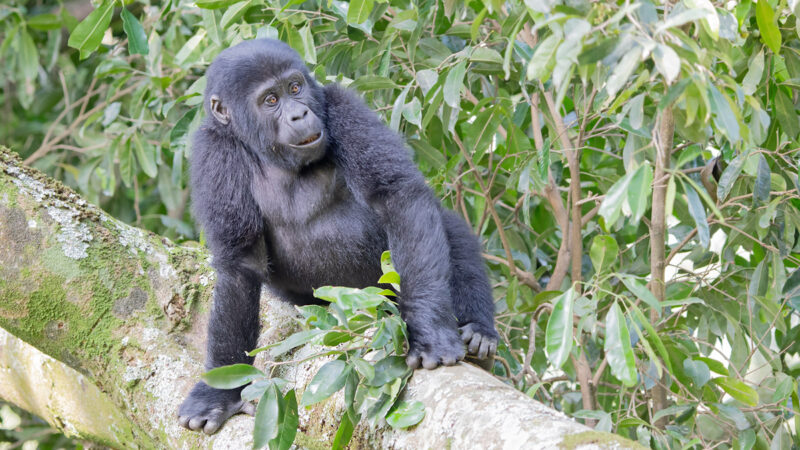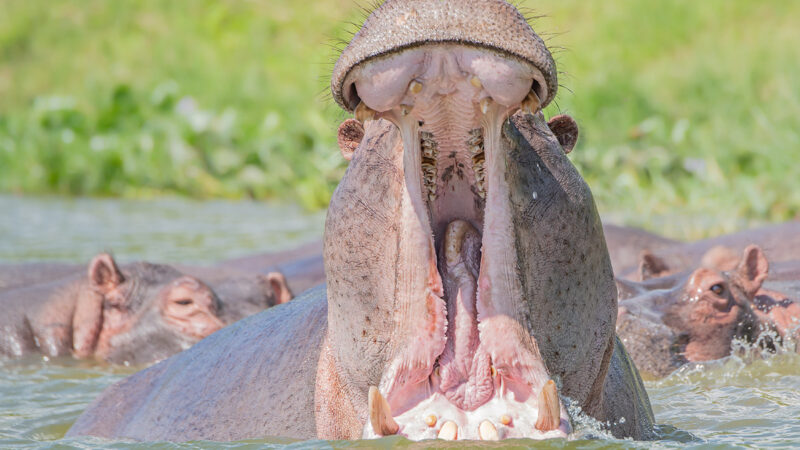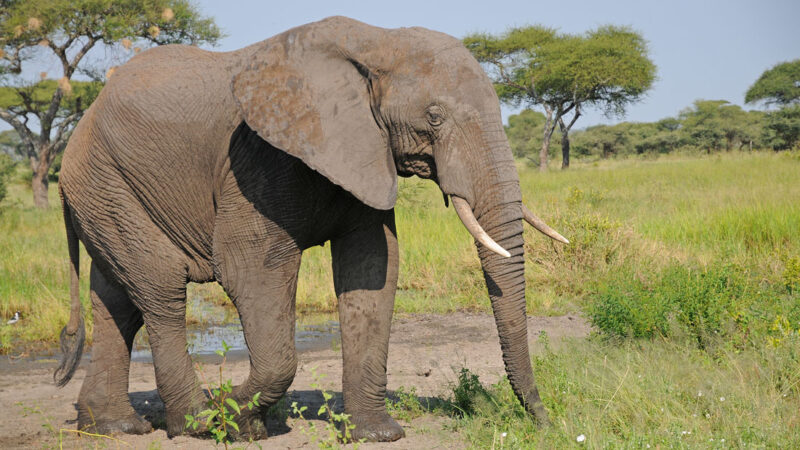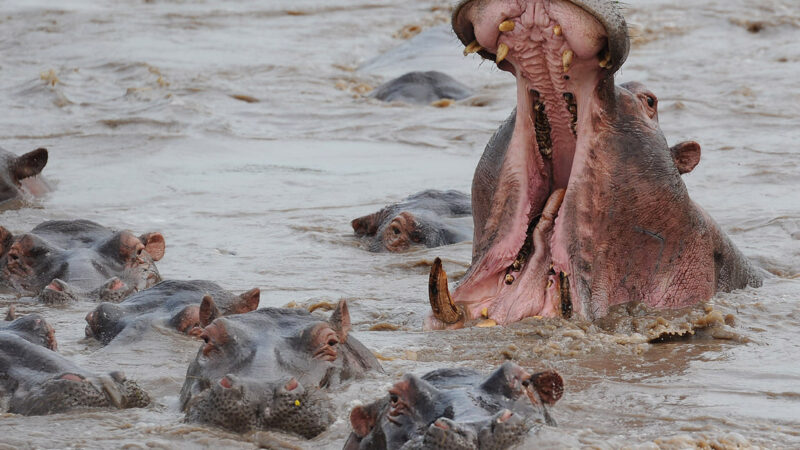Uganda Student Safaris: An Educational Adventure in the Heart of Africa
Uganda, often referred to as the “Pearl of Africa,” offers a wealth of opportunities for students to engage in educational and adventure-filled safaris. These Uganda safaris are designed to combine learning with exploration, providing students with a deeper understanding of Uganda’s unique ecosystems, rich biodiversity, and vibrant cultures. Whether you’re a student group interested in wildlife conservation, cultural studies, or simply seeking an adventurous learning experience, Uganda’s student safaris are tailored to inspire and educate. This detailed guide will explore where to go for student safaris in Uganda, what activities to include, and the best time to embark on these educational journeys.
Uganda Wildlife and Gorilla Trekking Safaris – EcoQuest Safaris
1 Day Uganda Gorilla Trekking Safari
1 Day Uganda Gorilla trekking safari in Mgahinga Gorilla National Park in Uganda is a fantastic experience for those who want to see mountain gorillas in their natural habitat.
1 Day Gorilla Trekking Uganda Tour
This 1 Day short gorilla trekking tour package to Bwindi forest from Kigali city is designed for clients who may not have enough time to spare but wish to track gorillas in Africa.
2-Day Bwindi Gorilla Trekking Safari
A 2-Day Bwindi Gorilla Trekking Safari from Kigali is a fantastic way to experience the thrill of tracking mountain gorillas in the lush forests of Bwindi Impenetrable National Park in Uganda.
3-Day Bwindi Gorilla Trekking Safari
The 3-Day gorilla trekking safari Uganda Bwindi takes you through a thrilling mountain gorilla trekking adventure in Bwindi Impenetrable National Park. This package allows you to explore.
4-Day Uganda Gorilla Trekking
This 4-Day Uganda Gorilla Trekking and Night Safari takes you to Lake Mburo National Park, Bwindi Impenetrable National Park and Lake Bunyonyi. Mountain Gorilla trekking is the highlight.
4-Day Lake Mburo National Park
You’re 4-Day Lake Mburo National Park and Lake Bunyonyi Uganda Adrenaline Safari itinerary sounds like a great way to explore the natural beauty and wildlife of Uganda.
4-Day Uganda Luxury Safari to Kidepo
A 4-Day Uganda Luxury Safari in Kidepo Valley National Park sounds like an exciting adventure. This itinerary is just a sample and can be customized to suit your preferences.
5-Day Uganda Safari to Gorilla Trekking
EcoQuest Safaris Ltd offers you the opportunity of a breathtaking 5-Day Uganda Safari to Gorilla Trekking and Chimpanzee Trekking Experience to see leopard.
5-Day Uganda Tour Experience
In this 5-Day Uganda Experience Tour with Gorilla Trekking Trip, you will visit two safari parks, Lake Mburo and Bwindi Impenetrable National Park, giving you a chance to visit.
6-Day Uganda Adventure Tour
On the 6-Day Uganda Adventure Tour for Chimpanzee Tracking, Wildlife Tour, and Gorilla Trekking Experience Safari, you will visit three of Uganda’s amazing national parks.
6 Days Uganda Gorilla Trekking
Experience the best of Uganda’s natural wonders on our 6 days Uganda gorilla trekking safari experience and wildlife adventure. Expect to encounter the majestic gorillas.
7-Day Uganda Safari to Explore
This 7-Day Uganda Safari is the perfect option if you are interested in primates or if you’re traveling with children. You get to see the beautiful sceneries and attractions of the savannah.
7-Day Uganda Wildlife & Primate Safari
This 7-Day Uganda Wildlife, Chimps & Gorilla Trekking Experience Safari will give you the best sightings in Uganda. You will experience amazing game drives in Queen Elizabeth National Park.
8-Day Uganda Safari Experience
This 8-Day Uganda Safari Experience will give you an unforgettable experience in the magical pearl of Africa. Expect to 8-Day Uganda Safari Experience some Big Five sightings.
8-Day Best of Western Uganda Safari
The 8-Day Best of Western Uganda Tour exploring the tourist city Fort Portal named after the first Guvnor of Uganda. The hot springs of Semuliki, Amabeere and the Palace.
Where to Go for Student Safaris in Uganda
Uganda’s diverse landscapes and ecosystems offer a wide range of destinations that are perfect for student safaris, each providing a unique learning experience.
Queen Elizabeth National Park
Queen Elizabeth National Park is an ideal destination for student safaris due to its rich biodiversity and variety of ecosystems. The park is home to over 95 mammal species and more than 600 bird species, making it a living laboratory for students studying biology, ecology, and conservation. The park’s diverse habitats, including savannahs, wetlands, and forests, provide an excellent opportunity for students to learn about the complex interactions between different species and their environments. In addition to wildlife, the park offers cultural experiences, such as visits to local fishing communities, where students can learn about the challenges of living in proximity to wildlife.
Kibale National Park
Kibale National Park, known as the “Primate Capital of the World,” is another top destination for student safaris. The park is home to 13 species of primates, including chimpanzees, red colobus monkeys, and L’Hoest’s monkeys. Students on safari in Kibale can participate in chimpanzee tracking and learn about primate behavior, conservation efforts, and the challenges of protecting endangered species. The nearby Bigodi Wetland Sanctuary is also a great educational site, offering lessons on wetland ecology, birdwatching, and community-based conservation initiatives.
Murchison Falls National Park
Murchison Falls National Park, Uganda’s largest and oldest conservation area, is a prime location for student safaris focused on ecology, geology, and conservation. The park is named after the spectacular Murchison Falls, where the Nile River forces its way through a narrow gorge before plunging into the river below. Students can explore the park’s diverse habitats, including savannahs, woodlands, and riverine forests, and study the interactions between different species. The park also offers boat safaris on the Nile, where students can observe aquatic ecosystems and the behavior of animals such as hippos, crocodiles, and waterbirds.
Bwindi Impenetrable National Park
Bwindi Impenetrable National Park is a UNESCO World Heritage site and one of the best places for student safaris centered on primate conservation and forest ecology. The park is home to almost half of the world’s remaining mountain gorillas, making it a crucial site for studying conservation efforts and the challenges of protecting endangered species in their natural habitats. Students can participate in gorilla trekking, learn about the park’s diverse flora and fauna, and engage with local communities to understand the socio-economic aspects of conservation. Bwindi also offers opportunities for students to learn about medicinal plants, forest ecology, and the importance of biodiversity.
Lake Mburo National Park
Lake Mburo National Park, with its varied landscapes of savannahs, woodlands, and wetlands, is a perfect destination for student safaris focusing on conservation and sustainable tourism. The park is home to a variety of wildlife, including zebras, impalas, and hippos, and offers a more intimate safari experience due to its smaller size. Students can learn about the park’s efforts to balance conservation with community needs, as well as the challenges of managing wildlife in a human-dominated landscape. The park also offers educational walking safaris, where students can learn about the flora, fauna, and the ecological processes that sustain the park’s ecosystems.
What to Do on Student Safaris in Uganda
Student safaris in Uganda are designed to be both educational and engaging, offering a wide range of activities that cater to different learning objectives and interests.
Wildlife Observation and Conservation Studies
Wildlife observation is at the heart of any student safari in Uganda. Students can engage in game drives, boat safaris, and guided walks to observe animals in their natural habitats, learn about their behavior, and understand the importance of biodiversity. These activities are often complemented by conservation studies, where students can learn about the challenges of protecting endangered species, the role of national parks, and the impact of human activities on wildlife. In parks like Queen Elizabeth and Murchison Falls, students can also participate in ranger-led conservation programs, offering a hands-on approach to learning.
Primate Tracking and Research
Primate tracking, especially gorilla and chimpanzee trekking, is a highlight of student safaris in Uganda. These activities provide students with the rare opportunity to observe primates up close and learn about their social structures, communication, and conservation status. In Kibale National Park, students can also participate in primate research programs, where they can assist researchers in tracking primates, collecting data, and learning about the methods used in primate conservation. These experiences offer invaluable insights into the complexities of primate behavior and the efforts required to protect these species.
Cultural Immersion and Community Engagement
Cultural immersion is an integral part of student safaris in Uganda, providing students with a deeper understanding of the country’s diverse cultures and the relationship between people and nature. Student groups can visit local communities, such as the Batwa near Bwindi or the fishing villages around Queen Elizabeth National Park, to learn about traditional practices, participate in cultural activities, and discuss the challenges of living near wildlife. These interactions help students appreciate the socio-economic dimensions of conservation and the importance of involving local communities in sustainable tourism and wildlife protection.
Ecological and Environmental Studies
Uganda’s diverse ecosystems offer a wealth of opportunities for ecological and environmental studies. Students can explore the different habitats found in Uganda’s national parks, from savannahs and wetlands to tropical forests, and learn about the ecological processes that sustain these environments. Guided nature walks, birdwatching tours, and visits to conservation projects, such as the Bigodi Wetland Sanctuary, provide students with a hands-on approach to learning about ecology, conservation, and sustainable resource management. These activities are often tailored to the specific interests and academic goals of the student group, ensuring a relevant and impactful learning experience.
Adventure and Outdoor Activities
In addition to educational activities, student safaris in Uganda also offer a range of adventure and outdoor activities that promote teamwork, leadership, and personal growth. Students can participate in hiking, canoeing, and camping in some of Uganda’s most scenic locations. For example, Lake Mburo National Park offers opportunities for horseback riding and mountain biking, while the Rwenzori Mountains provide a challenging environment for hiking and mountaineering. These activities not only provide physical challenges but also encourage students to develop problem-solving skills, resilience, and a deeper connection to nature.
Best Time to Go for Student Safaris in Uganda
The timing of a student safari in Uganda can significantly influence the experience, with different seasons offering unique advantages.
Dry Season (June to September and December to February)
The dry season is generally the best time for student safaris in Uganda, as the weather is more predictable, and the conditions are ideal for outdoor activities. During these months, the trails are dry and easier to navigate, making it an excellent time for gorilla and chimpanzee trekking, wildlife observation, and hiking. The dry season also coincides with the peak tourist season, which means that the parks may be busier, but it also provides more opportunities for cultural exchanges and community engagement. Additionally, the dry season offers better visibility for wildlife viewing, as animals tend to gather around water sources, making them easier to spot during game drives and boat safaris.
Wet Season (March to May and October to November)
The wet season, although less popular for tourism, offers unique opportunities for student safaris, particularly for those interested in ecology, botany, and birdwatching. The landscape during the wet season is lush and vibrant, providing a stunning backdrop for photography and environmental studies. The wet season is also a time of renewal, with many plants flowering and animals giving birth, offering students a chance to observe natural processes up close. Birdwatching is particularly rewarding during the wet season, as migratory birds arrive in Uganda, adding to the diversity of species that can be observed. Although the trails may be muddy and some activities more challenging, the wet season offers a quieter, more intimate safari experience, with fewer tourists and more opportunities for in-depth study and reflection.
Conclusion
Uganda student safaris offer a unique blend of education, adventure, and cultural immersion, making them an ideal choice for student groups seeking a meaningful and impactful learning experience. From the savannahs of Queen Elizabeth National Park to the forests of Bwindi and Kibale, Uganda’s diverse landscapes provide a living classroom where students can explore the complexities of ecology, conservation, and cultural heritage. By participating in activities such as wildlife observation, primate tracking, and community engagement, students gain a deeper understanding of the natural world and the challenges of protecting it. Whether you choose to visit during the dry season for optimal conditions or the wet season for a more intimate experience, a student safari in Uganda is sure to inspire and educate, leaving a lasting impact on all who participate.

